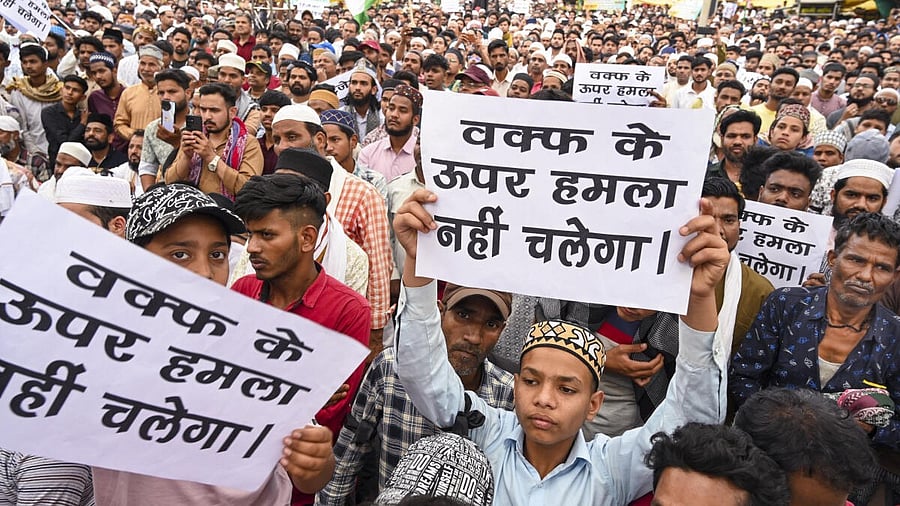
People hold placards during a protest against the Waqf (Amendment) Act, in Jabalpur
Credit: PTI Photo
New Delhi: The Supreme Court is set to hear on Wednesday about 10 petitions challenging the constitutional validity of the recently passed Waqf (Amendment) Act, 2025.
A bench of Chief Justice of India Sanjiv Khanna and Justices Sanjay Kumar and K V Viswanathan, is slated to hear the pleas on April 16.
Some of the petitioners are: Asaduddin Owaisi, Amanatullah Khan, Association for the Protection of Civil Rights (APCR), Maulana Arshad Madani, Samastha Kerala Jamiathul Ulema, Anjum Kadri and many others.
According to the petitioners, the amendments will distort the religious character of waqfs, while also irreversibly damaging the democratic process that governs the administration of waqfs and waqf boards.
The Centre also filed a caveat in the top court, so that no order should be passed without hearing it.
All the petitioners sought a direction from the Supreme Court for a stay on the Act.
One of the petitioners, Maulana Arshad Madani, the President of the Islamic cleric's body Jamiat Ulema-i-Hind, in his plea, claimed the amendments was destructive of Waqf administration and jurisprudence in India and an effort to redefine the very nature of waqfs as existing in the country.
The batch of pleas challenged the Waqf (Amendment) Act, 2025 (Act) on the grounds that it violates the rights enshrined under Article 14 (Right to equality), 25 (Freedom to practice religion), 26 (Freedom to manage religious affairs), 29 (Minority rights) and 300-A (Right to property) of the Constitution.
RJD MPs Manoj Jha and Faiyaz Ahmad have also filed their petitions challenging validity the Waqf (Amendment) Act, 2025 on the grounds that it facilitated large-scale government interference in Muslim religious endowments.
NGO All India Muslim Personal Law Board and political party DMK, through its deputy general secretary A Raja filed their respective petitions.
